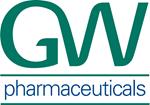GW Pharmaceuticals plc announces the submission of a Type II Variation Application to the European Medicines Agency seeking approval of EPIDYOLEX®, oral solution, for the treatment of seizures associated with Tuberous Sclerosis Complex, a rare genetic condition and a leading cause of genetic epilepsy.
LONDON, March 13, 2020 (GLOBE NEWSWIRE) -- GW Pharmaceuticals plc (Nasdaq: GWPH) (“GW”, “the Company” or “the Group”), a world leader in discovering, developing and commercialising cannabinoid prescription medicines, today announces the submission of a Type II Variation Application to the European Medicines Agency (EMA) seeking approval of EPIDYOLEX®, (cannabidiol) oral solution, for the treatment of seizures associated with Tuberous Sclerosis Complex (TSC), a rare genetic condition and a leading cause of genetic epilepsy. If approved, this will be the third licensed indication for GW’s cannabidiol oral solution in Europe.
“This submission to the EMA is an important step for GW and furthers GW’s mission to bring innovative cannabinoid medicines to patients with high unmet need,” said Chris Tovey, GW’s Chief Operating Officer. “We look forward to working with the EMA to demonstrate GW’s cannabidiol oral solution’s potential in this new indication and hope to make this rigorously tested cannabis-based medicine available to a new group of patients through a potential approval in due course.”
TSC is a condition that causes mostly benign tumours to grow in vital organs of the body including the brain, skin, heart, eyes, kidneys and lungs, and in which epilepsy is the most common neurological feature. TSC is typically diagnosed in childhood.1
The Type II Variation Application is based on data from a positive Phase 3 safety and efficacy study. The study met its primary endpoint with patients treated with GW’s cannabidiol oral solution 25 mg/kg/day experiencing a significantly greater reduction from baseline in TSC-associated seizures compared to placebo (49% vs 27%; p=0.0009). Results for the 50 mg/kg/day dose group were similar, with seizure reductions of 48% from baseline vs 26.5% for placebo (p=0.0018). All key secondary endpoints were supportive of the effects on the primary endpoint. The safety profile observed was consistent with findings from previous studies, with no new safety risks identified.
ADDITIONAL INFORMATION
About Tuberous Sclerosis Complex (TSC)
Tuberous Sclerosis Complex (TSC) is a rare genetic condition that has an estimated prevalence in the EU of 10 in 100,000.2 The condition causes mostly benign tumours to grow in vital organs of the body including the brain, skin, heart, eyes, kidneys and lungs and is a leading cause of genetic epilepsy.1,3 TSC often occurs in the first year of life with patients suffering from either focal seizures or infantile spasms. It is associated with an increased risk of autism and intellectual disability.1 The severity of the condition can vary widely. In some children the disease is very mild, while others may experience life-threatening complications.4
About EPIDIOLEX®/EPIDYOLEX® (cannabidiol) oral solution
EPIDIOLEX®/EPIDYOLEX® (cannabidiol) oral solution, the first prescription, plant-derived cannabis-based medicine approved by the U.S. Food and Drug Administration (FDA) for use in the U.S. and the European Medicines Agency’s (EMA) for use in Europe, is an oral solution which contains highly purified cannabidiol (CBD). EPIDYOLEX received approval in Europe in September 2019 for the treatment of seizures associated with Lennox-Gastaut syndrome (LGS) or Dravet syndrome in patients two years of age or older in conjunction with clobazam. In the U.S., EPIDIOLEX was approved in June 2018 by the FDA and is indicated for the treatment of seizures associated with LGS or Dravet syndrome in patients two years of age or older. A supplemental New Drug Application (sNDA) was submitted to the FDA in early 2020 for the treatment of seizures associated with Tuberous Sclerosis Complex (TSC). GW’s cannabidiol oral solution has received Orphan Drug Designation from the FDA and the EMA for the treatment of seizures associated with Dravet syndrome, LGS and TSC, each of which are severe childhood-onset, drug-resistant syndromes.
About GW Pharmaceuticals plc
Founded in 1998, GW is a biopharmaceutical company focused on discovering, developing and commercialising novel therapeutics from its proprietary cannabinoid product platform in a broad range of disease areas. The Company’s lead product, EPIDIOLEX®/EPIDYOLEX® (cannabidiol) oral solution is commercialised in Europe by GW, and in the U.S. by the Company’s subsidiary, Greenwich Biosciences. The Company has a strong pipeline of additional cannabinoid product candidates, with late-stage clinical trials in autism, schizophrenia, post-traumatic stress disorder (PTSD) and spasticity associated with multiple sclerosis (MS) and spinal cord injury. For further information, please visit www.gwpharm.com.
| Enquiries | |
| All investor enquiries | publicrelations@gwpharm.com |
| Investor Relations | |
| Stephen Schultz, VP Investor Relations, GW | +1 917 280 2424 / +1 401 500 6570 |
| UK, EU and ex-U.S. media enquiries | |
| FTI Consulting | |
| Mike Trace / Ben Atwell | +44 (0)203 727 1000 |
| U.S. media enquiries | |
| Sam Brown Inc Healthcare Communications | |
| Christy Curran | +1 615 414 8668 |
| Mike Beyer | +1 312 961 2502 |
1 NIH Tuberous Sclerosis Fact Sheet. https://www.ninds.nih.gov/Disorders/Patient-Caregiver-Education/Fact-Sheets/Tuberous-Sclerosis-Fact-Sheet.
2 Prevalence and incidence or rare diseases: Bibliographic data. https://www.orpha.net/orphacom/cahiers/docs/GB/Prevalence_of_rare_diseases_by_alphabetical_list.pdf
3 TS Alliance Website. https://www.tsalliance.org/. Accessed November 19, 2019.
4 de Vries PJ, Belousova E, Benedik MP, et al. TSC-associated neuropsychiatric disorders (TAND): findings from the TOSCA natural history study. Orphanet J Rare Dis. 2018;13(1):157.
5 Kwan P., Brodie M.J. Early identification of refractory epilepsy. N. Engl. J. Med. 2000;342(5):314–319.
6 French JA. Refractory epilepsy: clinical overview. Epilepsia. 2007;48 Suppl 1:3-7.





